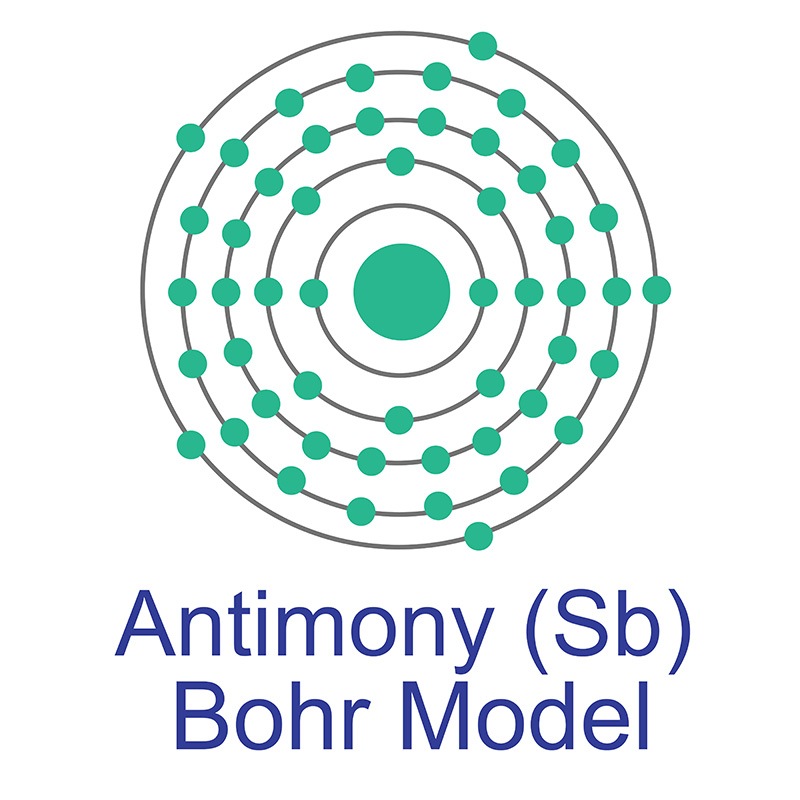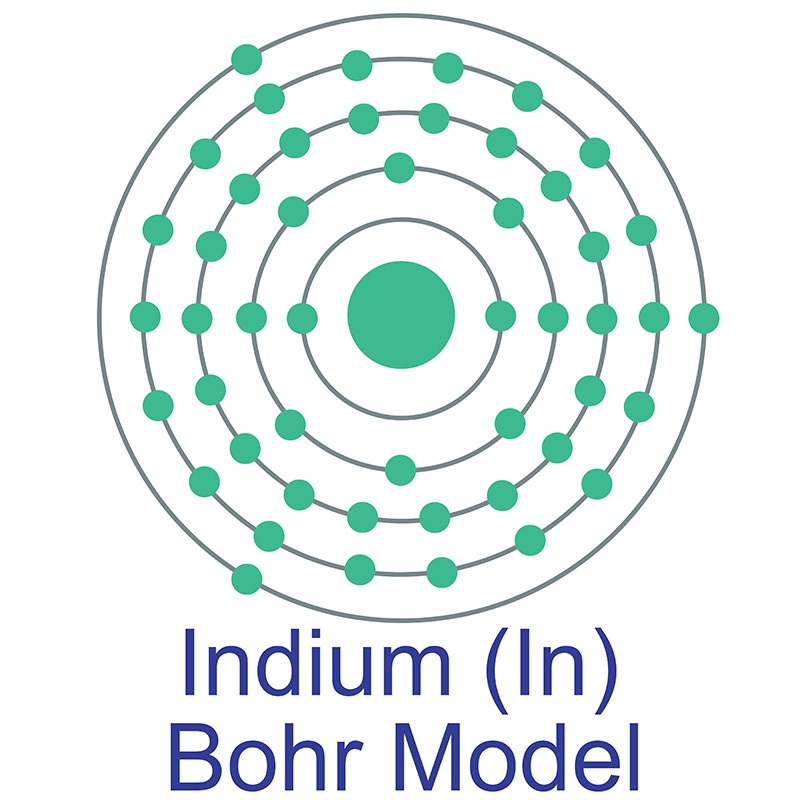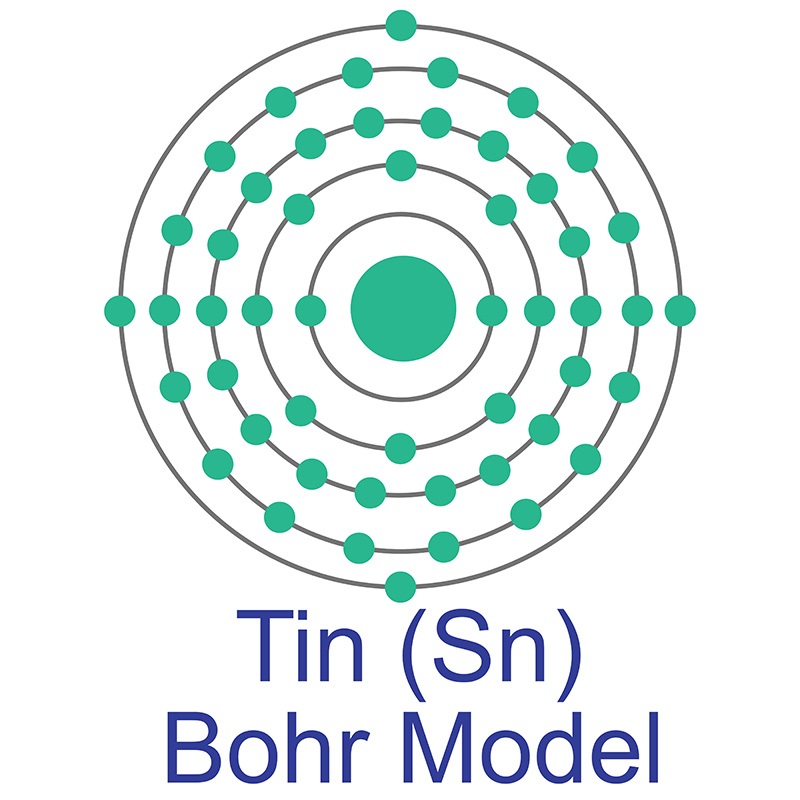See more Antimony products. Antimony (atomic symbol: Sb, atomic number: 51) is a Block P, Group 15, Period 5 element with an atomic radius of 121.760.  The number of electrons in each of antimony's shells is 2, 8, 18, 18, 5 and its electron configuration is [Kr] 4d10 5s2 5p3. The antimony atom has a radius of 140 pm and a Van der Waals radius of 206 pm. Antimony was discovered around 3000 BC and first isolated by Vannoccio Biringuccio in 1540 AD. In its elemental form, antimony has a silvery lustrous gray appearance.
The number of electrons in each of antimony's shells is 2, 8, 18, 18, 5 and its electron configuration is [Kr] 4d10 5s2 5p3. The antimony atom has a radius of 140 pm and a Van der Waals radius of 206 pm. Antimony was discovered around 3000 BC and first isolated by Vannoccio Biringuccio in 1540 AD. In its elemental form, antimony has a silvery lustrous gray appearance.  The most common source of antimony is the sulfide mineral known as stibnite (Sb2S3), although it sometimes occurs natively as well. Antimony has numerous applications, most commonly in flame-retardant materials. It also increases the hardness and strength of lead when combined in an alloy and is frequently employed as a dopant in semiconductor materials. Its name is derived from the Greek words anti and monos, meaning a metal not found by itself.
The most common source of antimony is the sulfide mineral known as stibnite (Sb2S3), although it sometimes occurs natively as well. Antimony has numerous applications, most commonly in flame-retardant materials. It also increases the hardness and strength of lead when combined in an alloy and is frequently employed as a dopant in semiconductor materials. Its name is derived from the Greek words anti and monos, meaning a metal not found by itself.
Materials
Materials by Form
2D Materials Alloy & Alloy Forms Pure Metals & Metal FormsCeramic FibersFoams: Metallic & Ceramic High Purity Materials Isotopes MXenesOxides Rare Earths Semiconductors Solutions
Chemicals & Salts
All Chemicals & Salts Acetates Aluminides Ammonium Sulfates Antimonides Arsenates Benzoate Bromates Bromides Carbonates Chlorides Chromates Fluorides Hydrides Hydroxides Iodates Iodides Lactates Molybdates Nitrates Oxalates Oxides Perchlorates Phosphates Selenates Selenides Selenites Silicates Stearates Sulfates Sulfides Sulfites Tantalates Tellurates Tellurides Tellurites ThiocyanatesVanadates
Ceramics
Nanomaterials
Organometallics
Materials by Application
Additive Manufacturing & 3D Printing Battery & Supercapacitor Materials Catalysts Dental Materials Electronics Materials Fuel Cell Materials Fusion EnergyGlass Manufacturing Green Technology & Alternative Energy Hydrogen Storage Laser Crystals Life Sciences & Biomaterials Metallurgy Nanotechnology & Nanomaterials Optical Materials Photovoltaic & Solar Energy Plating Pigments & Coatings Research & Development Space Technology Sputtering Targets Thin Film Deposition Water Treatment Weather Modification
Life Science Chemicals
Life Science Products AlcoholsAldehydesAmidesAminesAmino Acids & DerivativesAromaticsArylsAzetidinesBenzimidazolesBenzisoxazolesBenzodioxansBenzofuransBenzothiazolesBenzothiophenesBenzoxazolesCarboxylic AcidsEnzymes & InhibitorsEstersEthersFluorinated Building BlocksFuransHalidesImidazolesImidazolidinesIndazolesIndolesIndolinesIsoquinolinesIsoxazolesKetonesMorpholinesNaphthyridinesNitrilesOrganoboronOrganosiliconOxadiazolesOxazolesPharmaceuticals & IntermediatesPhenolsPhytochemicalsPiperazinesPiperidinesPyrazinesPyrazolesPyridazinesPyridinesPyrimidinesPyrrolesPyrrolidinesPyrrolinesQuinazolinesQuinolinesQuinoxalinesSpiroesSulfonyl ChloridesTetrahydroisoquinolinesTetrahydropyransTetrahydroquinolinesTetrazolesThiadiazolesThiazolesThiazolidinesThiolsThiophenesTriazinesTriazoles
About Us
Locations
Austria Belgium Brazil Canada China & Hong Kong Czech Republic Denmark Finland France Germany Greece Hungary India Indonesia Israel Italy Japan Malaysia Mexico Netherlands Norway Philippines Poland Portugal Russia Singapore South Korea Spain Sweden Switzerland Taiwan Thailand Turkey United Kingdom United States
Industries
Aerospace Agriculture Automotive Chemical Manufacturing Defense Dentistry Electronics Energy Storage & Batteries Fine Art Materials Fuel CellsFusion Energy Glass Investment Grade Metals Jewelry & Fashion Lasers Lighting Medical Devices Museums & Galleries Nuclear Energy Oil & Gas Optics Paper & Pulp Pharmaceuticals & Cosmetics Research & Laboratory Robotics Solar Energy Space Sports Equipment Steel & Alloy Producers Textiles & Fabrics Water Treatment Municipalities
Follow Us

 It is a relatively rare, extremely soft metal is a lustrous silvery gray and is both malleable and easily fusible. It has similar chemical properties to
It is a relatively rare, extremely soft metal is a lustrous silvery gray and is both malleable and easily fusible. It has similar chemical properties to  gallium such as a low melting point and the ability to wet glass. Fields such as optics and
gallium such as a low melting point and the ability to wet glass. Fields such as optics and  See more Tin products.
See more Tin products. Tin has nine stable isotopes and 18 unstable isotopes. Under 3.72 degrees Kelvin, Tin becomes a superconductor. Applications for tin include
Tin has nine stable isotopes and 18 unstable isotopes. Under 3.72 degrees Kelvin, Tin becomes a superconductor. Applications for tin include 